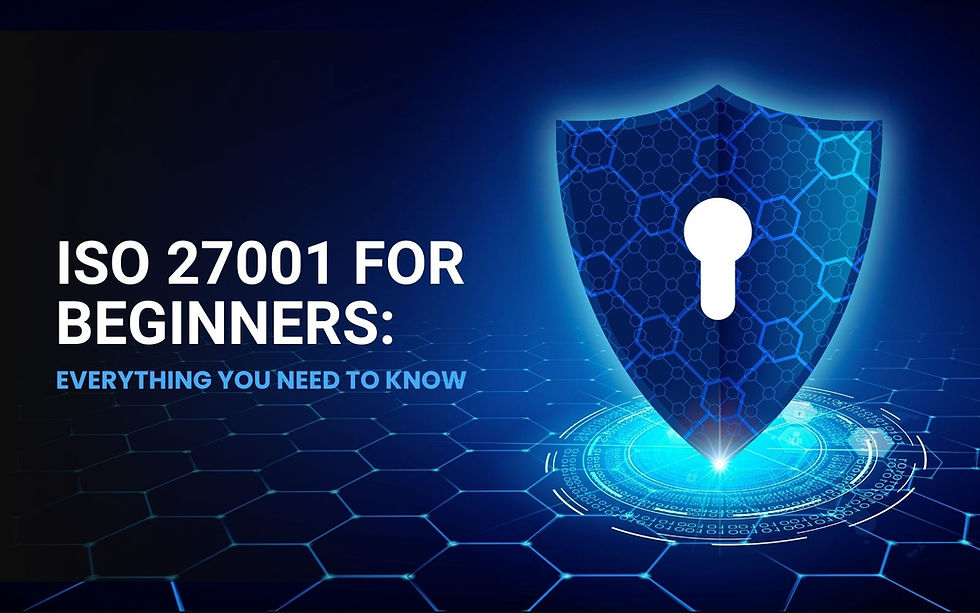Who Needs ISO 27001 Certification?
- osscertification20
- Jul 14, 2023
- 2 min read
The ISO 27001 standard, assists organizations in organizing their processes, people, and technology. ISO 20071 was created to protect information availability, confidentiality, and integrity. The ISO 27001 Certification focuses on a company's Information Security Management System (ISMS), which defines how information security has been integrated into its business processes. ISO certification requires businesses to identify information security threats in their systems and the controls that will address them. ISO 27001 has 114 controls organized into 14 categories.

There is no obligation to implement the entire ISO 27001 control set. ISO certification, and other certifications of compliance such as SOC 2, have the primary purpose of demonstrating to your clients and customers that security is a top priority. ISO 27001 is widely regarded as the global gold standard for safeguarding information and data security.
To determine whether your firm needs ISO 27001 certification, assess the locations in which it operates. SOC 2 is a well-known security standard in the United States that has become a regular industry practice. If your clients and prospects have requested confirmation of your company's security against an internationally recognized standard, ISO 27001 certification may be necessary.
If a SOC 2 fits your customer's criteria while also meeting your company's security and compliance requirements, you'll choose a SOC 2 over an ISO 27001 certification. Based on the expectations of their growing client base, many businesses realize that they will eventually require both an ISO 27001 certification and a SOC 2. Initially, your organization may select SOC 2 and then pursue ISO 27001 as your business grows.

ISO 27001 Certification For Various Industries
IT, banking, communications, healthcare, and government are some of the key industries that have ISO 27001 certification.
IT Industries
At IT and software organizations, information is a commodity, and in many cases, it is very sensitive information. The ability of a corporation to maintain its data private, discreet, and proprietary is at the heart of its business sustainability.
Finance
Security is a top priority in the financial sector. Nowadays, most money is digital, so even a simple mathematical error or small data loss might result in millions or billions of dollars being "misplaced." Although cybercriminals frequently target the banking sector, ISO Certification compliance helps firms stay to maintain and secure customer trust, which might make or break them.
Healthcare
Essentially, all of the information that flows through the healthcare industry is highly sensitive. HIPAA laws in the United States demand certain security standards be followed by certain organizations in the industry, however, ISO 27001 allows healthcare organizations anywhere in the globe to maintain and confirm their high degree of security.
Telecom
The telecom business is a data superhighway, and as such, it may be a hugely valuable entry point for hackers. As a result, security is crucial in the telecom business, and ISO 27001 is the most widely recognized standard that these organizations rely on.
Conclusion
ISO 27001 is a management standard that was originally intended for organization certification. The system works as follows: a company (or any other type of organization) develops its Information Security Management System (ISMS), which includes procedures (e.g., risk assessment), technology (e.g., cryptography), policies (e.g., Information Security Policy), people (e.g., internal auditor), and other components, and then invites a certification body to audit whether their certification is compliant with the standard.



Comments